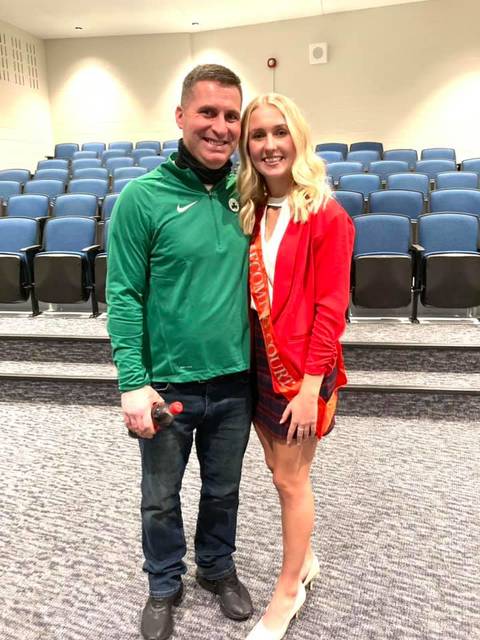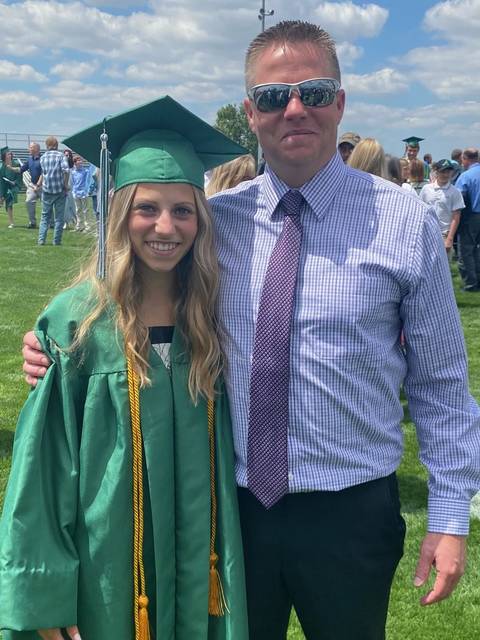


For some June 20, 2021, will be their first day without a father present in their lives. How do we grieve the loss of a father? How long does it take? What is involved? My father, whom I loved and who loved me, died when I was 30, and I still lament his death.
For others, this is their first Father’s Day, and they might be asking themselves,“Can I do this? I’ve never been trained for this job. How do I know if I’m doing it right?”
Standards for fathers have changed through the decades, and conflicting views make it difficult, especially when persons not in the immediate family feel obligated to express their opinions with little or no knowledge of the family.
I’ve always believed that the definition of competent fatherhood is negotiated between partners and is subject to change as children enter different phases of their lives. Also, we realize that children in a given family are not carbon copies of each other.
At times I interview fathers with young children, fathers who are the primary source of income in the family and may be working 70 to 80 hours a week. I ask them to consider the conflicts they experience: me time versus time with their partner versus time with their children. And I indicate to them that the time with children is not about showering them with material goods. It’s about connecting, talking, fishing, gardening, building “stuff,” cooking, playing games, reading, helping with homework. And the expertise of the father does not need to be at a high level. It’s about doing “stuff” together.
I teach college classes in literature, and I’m always hoping that my students will realize that the authors who write the works we study are real people with hopes that the words they send out to the world will resonate with their readers. After studying Linda Pastan’s, “To a Daughter Leaving Home,” one of my Edison State students Abigail Pleiman, in addition to describing the impact of the literary devices the poet uses in the poem, wrote about her father, Dan Pleiman, and his influence on her.
As the only daughter in the Pleiman Family, Abigail will be going away to college in a few short months. She indicates in her analysis that the metaphor of the father teaching his daughter to ride a bike resonates with her because when she was 8, her father taught her. She writes, “I was so scared to ride without training wheels, but my dad made me feel safe,” and eight years later “My father taught me how to drive.” She indicates that Dan has helped her to accomplish many things in life and has prepared her to leave her birth family one day. As she says, “When I read this poem, I imagine it from the father’s point of view. I picture him standing by, watching his little girl grow up too fast but also being proud of the independent daughter he has raised. When I read this poem, I am reading about my life. I will carry this poem with me for the rest of my life because it will always remind me of my father’s and my relationship.”
Another posting by one of my students, Alysse Blain, indicates that the words of poet David Wagoner, author of “My Father’s Garden,” have resonated with her. She says that this poem about a father in “tyger-mouthed mills” where the work is repetitive, grueling, and back-breaking takes home discarded “lumps of tin and sewer grills” from the scrapyard as if they were “his ripe prize vegetables” to make toys for his children. And this action reminds her of her father. Alysse says of her father, who works third shift in an area factory, “He can fix anything and is obsessed with building things.” He brings home wood and scrap metal and is able to transform this largesse into beautiful items for his family. Examples, he built Alysse a chair for her 16th birthday and built a nightstand for her brother on his 13th birthday.
Poet and Sinclair Community College professor, Furaha Henry-Jones recently wrote about her father on his 70th birthday. She indicated that he is handsome, carries himself with dignity, has the greatest laugh and is a fine storyteller. Further, she wrote that he is athletic, charismatic (called by the family the “Henry charm”), is intuitive, feels deeply and loves and trusts God.
As I reflect on these expressions about fathers from persons I know, I think of my own father, a good man, a hard-working man, faithful to his family in spite of having no positive role model because his own father abandoned his four children from that union after his wife, my father’s mother, died when my father was 4 years old.
In conclusion, think about what you like/love about your father and tell him. Better yet, unless you have a decent handwriting, type it up and give it to him. I’ll bet he’ll hide it in his sock drawer or in another private place as fathers need affirmation.
And if your relationship with your father falls short of what you’d like it to be, if there is still time, consider strategies you might initiate to make it better. It’s all about courage to change the things you can.




